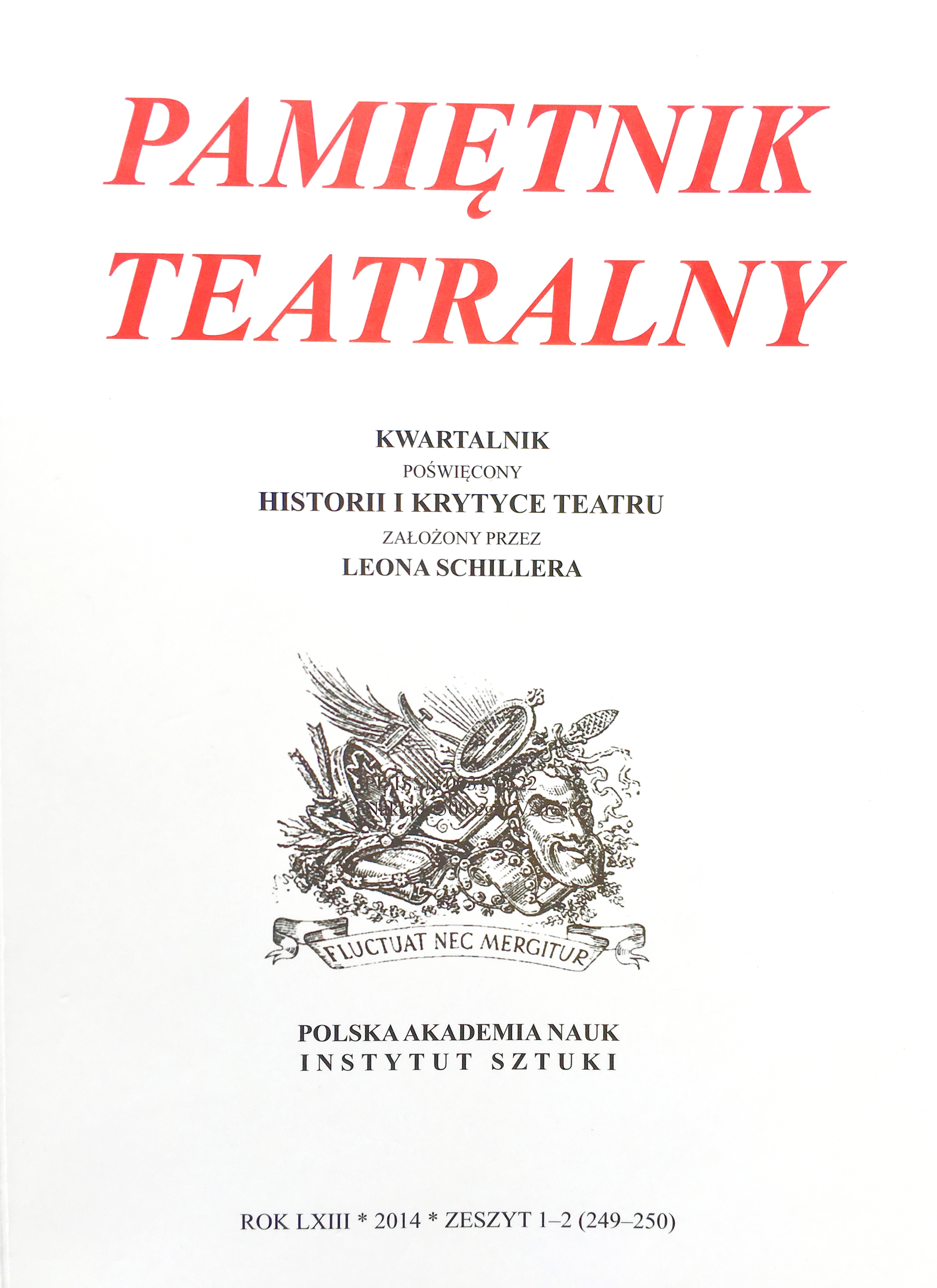Stary Aktor z Wyzwolenia
Old Actor from Wyspiański’s Deliverance
A Tentative Portrait of Leon Stępowski
Author(s): Dorota Jarząbek-WasylSubject(s): Theatre, Dance, Performing Arts
Published by: Instytut Sztuki Polskiej Akademii Nauk
Keywords: Polish theatre;19th century theatre;theatre history;Polish actors;
Summary/Abstract: The article takes as its starting point the history of friendship between Leon Stępowski and Stanisław Wyspiański, and the metaphorical description of the “useful artist’s” experience in Act III of Deliverance. Leon Stępowski (1852-1914) was the prototype of the Old Actor character in Deliverance, and the role merged with him in popular opinion for many years. Knowledge of other roles played by this long-time actor of the Miejski Theatre in Cracow gradually faded into obscurity. The article presents his artistic biography, tracing out his activities in theatre and without since the beginnings of his acting career in the 1870s until the retirement in 1912. This descendant of a noble family from the Kutno area and a student of Jan Królikowski and a Lvov acting school spent a decade wandering from one provincial theatre to another, and then settled in Cracow for the next 35 years. He worked under Stanisław Koźmian, Tadeusz Pawlikowski, and Józef Kotarbiński. With his wife, he ran a speech impediment therapy studio; he collected historical memorabilia and tried his hand as a chronicler of theatre life (evinced by the surviving small fragments of his book Ludzie teatru – “Men of Theatre”). He was a colourful character, as can be seen from anecdotes recounted in several memoirs of the period (by J. Śliwicki, W. Ryszkowski, W. Biegański, and L. Kotarbińska). What is striking about Stępowski’s career is not its exceptionality but rather the typicality of what he experienced as an actor who had never risen to stardom, and nevertheless in some way influenced his contemporaries, including Wyspiański. A careful examination of the roles he played, his performing style and acting temperament reveals that the key to understand his impact lies in his world-view that stemmed from the Romanticism, and his ethical stance, which was very demanding and seemed conservative to some of his contemporaries. Finally, it is interesting that Stępowski seemed “eternally old” as he was cast in the roles of men commanding respect, “dignified” fathers and grandfathers, and even in private life he gave the impression of gravity. Wyspiański saw this as a tragic trait of an artist who felt alienated in the strange theatre environment of the new epoch while being acutely aware that he was getting old.
Journal: Pamiętnik Teatralny
- Issue Year: 250/2014
- Issue No: 1-2
- Page Range: 153-184
- Page Count: 32
- Language: Polish

